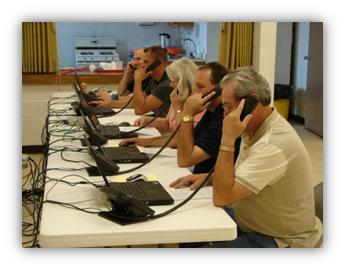So this morning’s post is a little different. And while it’s for everyone, I believe that our friends and clients on the public radio side of the street will derive the most benefit from it.
It’s about a video that’s been making the rounds in music circles that you may have seen. Bob Lefsetz included it in his newsletter, and the Conclave’s new CEO, Bob Shannon, mentioned it to me as well.
It’s a “TED Talks” video featuring Amanda Palmer, the force behind the punk/cabaret band, the Dresden Dolls. Not surprisingly, her talk is resonating within the music industry because on the surface, it seems to be about how musicians can give away their music if they simply trust the audience, and ask for help. Amanda is an amazing speaker, storyteller, and presenter, but her talk isn’t about music – it’s about artists, craftspeople, and how they can build trust, fandom, and ask for help.
But in fact, Amanda’s talk is about public radio.
>EMAIL RECIPIENTS: CLICK HERE TO WATCH AMANDA PALMER VIDEO<
When you watch it, think about the following themes and how they might help public radio redefine its thinking about the audience, support, and that nasty institution called “pledge.”
Her talk is about trust.
It’s about creating and engendering “random closeness” with fans.
It’s about a fair exchange between the audience and the artist (in this case, public radio programs and the stations that broadcast them).
It’s about embracing a one-to-one connection with fans.
It’s about the art of asking people to help public radio and allow them to join the tribe.
It’s about effectively using online platforms to activate these relationships.
 Now think about the institution known as “pledge.” It’s the same impersonal way it’s always been done – the station is in the studio surrounded by a phone bank. The very thing that fans love – the programs – is interrupted, compromised, and corrupted. Tactics include guilting and cajoling the audience, giving out the phone number incessantly, bribing them with tote bags and mugs, while still not looking the audience in the eye and leveraging the trust, and the great relationship that public radio has grown and nurtured with its audience, especially in times of trouble.
Now think about the institution known as “pledge.” It’s the same impersonal way it’s always been done – the station is in the studio surrounded by a phone bank. The very thing that fans love – the programs – is interrupted, compromised, and corrupted. Tactics include guilting and cajoling the audience, giving out the phone number incessantly, bribing them with tote bags and mugs, while still not looking the audience in the eye and leveraging the trust, and the great relationship that public radio has grown and nurtured with its audience, especially in times of trouble.
As she points out, “The perfect tools aren’t going to help us if we can’t face each other and give and receive fearlessly, but more importantly, to ask without shame.” That’s why Kickstarter and other tactics worked for her in the quest to sustain herself and her art.
And at the end, to paraphrase her call to action, it’s not about asking how public radio makes people pay for programming. It is about asking how public radio lets people pay for programming.
“Becoming the hat” – in our digital world – is an opportunity to start thinking differently about supporting the art we love, especially among a younger audience that does so many things in so many different ways.
It’s an important conversation. And this is a very compelling point of view.
- A 2020 Lesson?It Could All Be Gone In A Flash - April 24, 2025
- How AI Can Give Radio Personalities More…PERSONALITY - April 23, 2025
- Can Radio Afford To Miss The Short Videos Boat? - April 22, 2025




i sent Amanda’s video to our staff last week and we showed it to everyone in preparation for our upcoming fund drive. it has so much to do with the attitude of connection with our audience and understanding the asking and the giving that are the root of support of community radio. good call, Fred. (As always.)
Dave, much appreciated. We saw it the exact same way. Hope it helped connect the dots and get the staff in touch with the communities and tribes of support in your audience. Thanks for reading our blog.